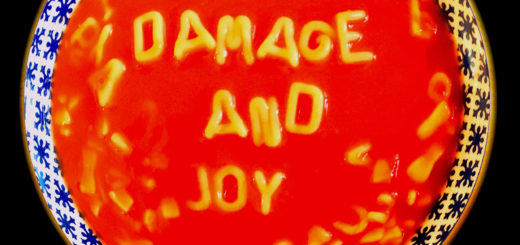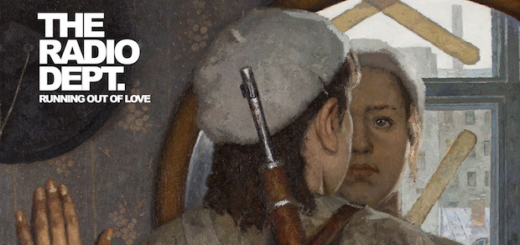NEAR TO THE WILD HEART OF LIFE by Japandroids

Genre: Indie Rock
Favorite Tracks: “No Known Drink or Drug”, “Arc of Bar”, “Near to the Wild Heart of Life”, “True Love and a Free Life of Free Will”
If one were to look for a common thread that runs through the great rock and roll bands of the last 60 years, you might find that many of them are surrounded by a unique, mythical quality. Aided by the passage of time, the outsized emotional nature of the music they make, and occasionally their own tragic personal stories, these figures go from humans to gods in the mind of the public — Hendrix, Kurt Cobain, Janis Joplin, and perhaps Jack White in a more modern sense. Japandroids, fortunately, have avoided the tragedy aspect, and the release of their first album in five years isn’t going to stop the world from turning, but their existence is a fascinating exercise in rock and roll myth building. They are the epitome of every DIY rock and roll dreamer’s fantasy — two friends who got together to play music in what they considered a drab Vancouver scene, grinding away at gigs they had to plan themselves for lack of appropriate venues, coming this close to giving up on the dream only to be signed at the last possible second, and vaulted into worldwide attention and critical acclaim. Their second album, 2012’s CELEBRATION ROCK, is counted by many as one of the best records of the 2010s.
And then, they disappeared for five years after a lengthy worldwide tour. Their absence was only amplified by the fast-moving media climate, and as a result, NEAR TO THE WILD HEART OF LIFE and the band’s upcoming tour feels like a much greater comeback than it really is. Though it won’t go on to be remembered as anywhere nearly as good as CELEBRATION ROCK, NEAR TO THE WILD HEART OF LIFE is a worthy third entry from this band of dreamers that celebrates their hyper-sincere rock and roll ethos, while also demonstrating growth as artists.
While Japandroids’ music has always been a fairly even mixture of classic rock and noisy punk, their first releases were leaned towards the harder side of their sound and were extremely minimal in their orchestrations. The group is only made up of two men, and guitarist Brian King compensates by playing with a rhythmic, open chord-oriented style that ensures that the band’s sound is full, even without other instruments. On NEAR TO THE WILD HEART OF LIFE, the band leans into their heartland rock influences more so than ever before, particularly evident on the acoustic guitar-driven “North East South West,” which wouldn’t sound out of place on a John Mellencamp album. There’s also much more instrumental variance than ever before —several songs feature acoustic guitars, and there’s a few synthesizers here and there. Also somewhat new here is their use of loud-soft dynamics, but they are very good at them, if a bit predictable in their methods. Mid-album track “Arc of Bar,” one of the best examples of the “new” Japandroids heard on this record, is something of an outlier from the rest of their work, a sprawling, seven-minute, prog-tinged track that manages to build to a finish at an 11 despite starting at around a nine.
In tandem with their musical development, King’s lyrics continue to develop in interesting ways. Early Japandroids releases seemed to reject elaborate lyrics on principle (early fan favorites like “Wet Hair” often rely on the repetition of two or three lines for the entire song), but on NEAR TO THE WILD HEART OF LIFE, King’s alliteration-heavy, bleeding heart lyrics are an easy way to track how this band has grown in its absence. There’s still a highly adolescent spirit to them, and frankly, you might roll your eyes at lines like, “She kissed me like a chorus, said “Give ’em hell for us / The last drink of the night, last night in town / Baby, this one is on the house.” Japandroids’ lyrics are written as if the writer is experiencing every feeling for the first time — King writes about sex as if he were a virgin, as if every drink he’s having is his first. Even if King’s lyrics are a bit corny, coming across like a college freshman’s impersonation of Bruce Springsteen, they’re delivered with such unabashed sincerity that more often than not, you’ll find your fists in the air along with them. In the hands of lesser performers, they would fall flat, but here, they’re a goddamn triumph.
The biggest issue that this release has is that the ever-present energy and urgency that Japandroids need for their songs to function sort of ebbs and flows, and when it isn’t present, it’s hard to stay engaged with these songs. Their uptempo songs seem to work the best in that sense, particularly “No Known Drink or Drug,” a late-album stunner that could go toe to toe with any of the barn burners on CELEBRATION ROCK energy-wise, while also capturing a wistfulness that has always been there in their music, but hasn’t been expressed in a similar fashion before. At the same time, other songs like “I’m Sorry (For Not Finding You Sooner)” and “Midnight to Morning,” while not lacking these qualities, feel like they’re slogging along in comparison with the rest of the record.
While the Japandroids myth may be damaged a bit by this album, and even if it’s far from perfect, NEAR TO THE WILD HEART OF LIFE still feels timelier than it should. Look at America’s most recent election cycle or, hell, log onto Twitter for five minutes, and you’ll see that the world has been drenched in emotional detachment and irony. In 2016, the coolest thing you could be is a Father John Misty-esque smartass, thumbing your nose at the world’s frivolity and sometimes those who really truly believe in something. NEAR TO THE WILD HEART OF LIFE doesn’t convince me that Japandroids is the band that’s going to take its fans away from that bottomless pit, but they’re at very least a reminder that a good rock and roll band that truly believes in rock and roll, executed with the spirited exuberance, sentimentality, and the touch of nostalgia that Japandroids brings to the table, is really fucking cool.
Verdict: Recommend



